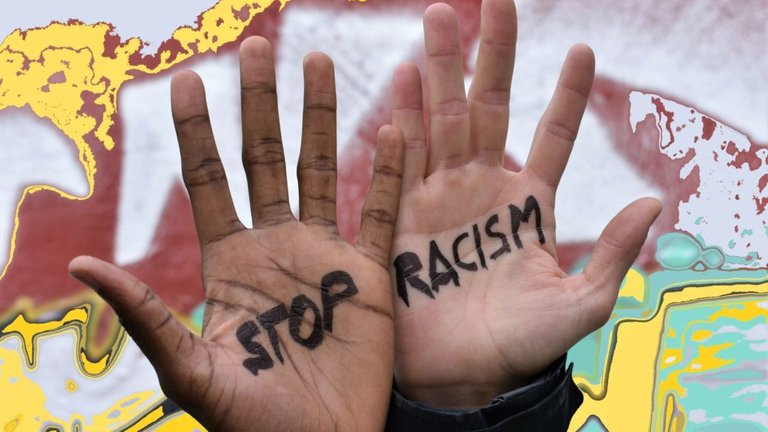The Rise of Racism on Social Media and Depression
The rise of racism on social media has long been considered a contributing factor to traumatic stress, but a recent study suggests that it may also play a role in depression. Twitter users are increasingly discussing racial violations and triggering traumatic stress, and this trend has not abated. A recent study shows that the number of racial tweets increased by 68.4% after COVID-19. Researchers have also noted a connection between race and depression, with a spike in Tweets following the murder of a black man in Charlottesville, Virginia.
Race-related tweets increased by 68.4% after COVID-19
The study's methods include a quantitative analysis of race-related tweets and qualitative content analysis of a random sample of 3,000 tweets. Researchers determined that negative sentiments toward Blacks and Asians had increased, largely coincident with recent social distancing practices in the U.S. Negative sentiments for blacks and Asians were highest around the week of March 16, while racial sentiment was lowest after COVID-19.
Despite these findings, researchers still must understand the nuances involved in the multiple viewpoints on vaccines. These tweets can provide important insights for public health messaging. Researchers at University of California, San Francisco, published their findings in J Racial Ethn Health Disparities, which reveals a significant increase in race-related tweets about COVID-19. The authors of the study cite other sources.
Racism on social media is a component of traumatic stress
The impact of racialized social media may go beyond the actual experience of the individuals who are subjected to it. The impact of this issue is not limited to the internet; it also extends to the abuse experienced by friends and family members. Whether it's the result of physical abuse or systemic racism, these experiences can result in traumatic stress. Studies have also shown that stress levels can increase in the presence of racism.
Exposure to racism can trigger increased aggressive behavior in the individual, which may be an attempt to protect themselves and loved ones. Moreover, chronic racism concerns can erode hope and confidence, and lead to other negative health effects. Chronic stress from racism can lead to physical ailments, including heart disease, stroke, and diabetes. In a recent study, researchers found a link between higher levels of exposure to racism and an increased risk of various chronic illnesses.
It can be a trigger of racial violations
The rise of social media and the spread of racist speech is troubling. Racism and hate speech can be expressed freely and exacerbate existing racial issues. The Tionghoa ethnic community has been the target of several attacks in recent years, including one in Tanjung Balai, North Sumatra. In the wake of this attack, racial hate speech has spread on social media. Many of the contents posted on these sites rehash incidents of violence against the Tionghoa ethnic community in 1998.
Racism on social media is often expressed using offensive, insulting and inflammatory language, which promotes racial hatred. The authors of the paper identify three effective ways to respond to racial posts: education, evidence-based discourse, and content moderation. Rather than engaging in insults, callouts, or ridicule, the authors note that users should consider their intent before responding to a racist post.
It can be a component of depression
While the prevalence of racism in our society is sadly increasing, the fact remains that there are many ways to cope with the effects of racism. One way to increase your resilience is to talk with people you trust. Talking with a person you trust can trigger hormones that alleviate stress. Research has shown that black women who openly talk about their experience of racism have lower levels of chronic stress and premature aging. In addition, they have better immune systems.
Chronic stress and heightened sensitivity to the negative effects of racism can lead to physical and mental health problems. Exposure to these events can weaken the immune system and increase your risk of heart disease, stroke, and burnout. While there are countless ways to deal with the impact of racism on our mental health, we must also remember to take care of ourselves. Racism on social media is just one example of a type of overwhelming stress.
It can be a component of xenophobia
Xenophobia is a broad term for a fear of strangers or people who are different from one's own group. This fear often results in hostility toward people of different racial, cultural, or ethnic backgrounds. While xenophobia is sometimes confused with racism and homophobia, it is distinct from those two types of prejudice. Unlike these forms of prejudice, xenophobia is not based on actual threats posed by foreigners or other ethnic groups. Rather, it stems from a false notion that people from other races or cultures are hostile, dangerous, or threatening.
In general, xenophobia is an issue that requires professional help. There are several approaches that you can take to treat xenophobia. First, you can try to become more aware of your own biases and those of others. Exposure to other cultures can also help you overcome xenophobia. Moreover, exposure to other cultures can help you replace xenophobic thoughts with more realistic ones. Alternatively, you can seek professional help, but be sure to seek an open-minded therapist to help you overcome your fears.
